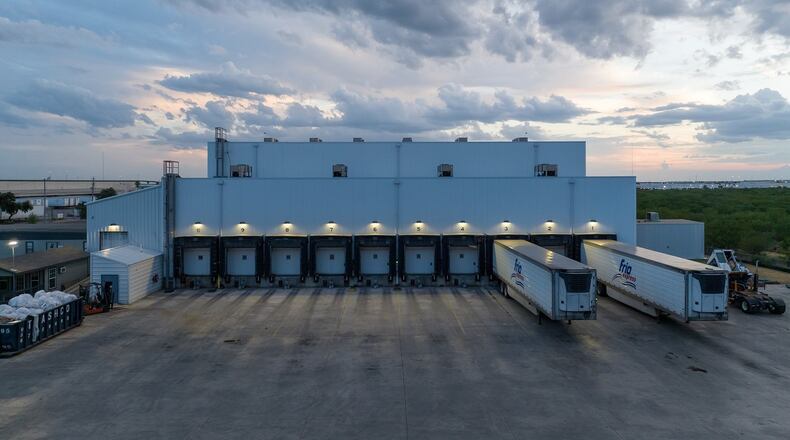An Atlanta startup announced it has cold hard cash to invest into building a network of freezer and refrigeration storage facilities across the country.
Envision Cold said it recently obtained $500 million in backing from an investment partner to build a portfolio of cold storage facilities, which preserve perishables like produce, meat and medicine. The Buckhead company expects the investment to spur $1.5 billion in acquisitions and development across the cold chain logistics pipeline.
Austin Solem, Envision’s CEO, told The Atlanta Journal-Constitution he expects to use the funds to acquire currently operating warehouses while also financing new construction. He said his firm will be patient, strategic and will not “gobble up everything we can or just put up buildings to put up buildings.”
“We want to be more than just storage guys,” he said. “We want to reach up and down customers’ cold chains.”
Envision did not disclose the investor group, but the company obtained the investor capital through a partnership with real estate services firm Newmark Group.
While COVID-19 put several industries on ice for months, cold storage demand only heated up.
Online grocery sales skyrocketed during pandemic lockdowns, prompting unprecedented demand for refrigerated and frozen storage space, according to real estate services firm CBRE. In mid-2022, about 3.3 million square feet of speculative cold storage space was in development — a tenfold increase from 2019. During the same time frame, the average national vacancy rate at existing facilities dropped to 3.8%.
Stephen Draper, Envision’s chief operating officer, said the demand spike is hardly surprising, given the pandemic’s supply chain disruption. Many perishable foods — from eggs to cream cheese — became rare commodities at undersupplied grocery stores during the pandemic.
“These food producers do not want to get caught in a situation like they did during COVID,” he said.
Solem, Draper and Eric Diaz, the Envision’s chief financial officer, co-founded the company after long careers with Americold Realty Trust, a cold storage industry leader in North America alongside Lineage Logistics LLC. They said their new venture will act as a one-stop shop for companies from blast freezing to storage to shipping.
Founded within the past year, Envision has already acquired facilities in California’s Bay Area, Vancouver and Laredo, Texas. Solem said he expects 95% of their customers to be food and beverage related.
For new construction projects, Envision has an industrial development partner, which Solem declined to name. The average age of a cold storage facility in the U.S. is 42 years old, according to real estate services firm JLL. Aging infrastructure is also fueling demand, Solem said.
Draper said new facilities are more efficient which can help reduce energy costs. Solem added that cold storage demand, albeit accelerated by the pandemic, is a stable investment.
“No matter the state of the economy, people always will have to eat,” he said.
About the Author





